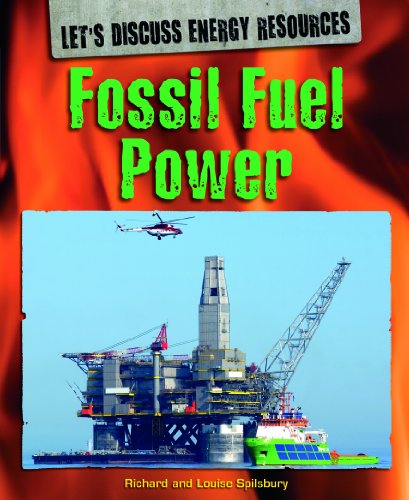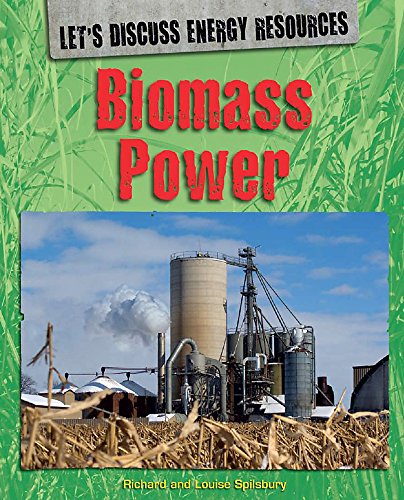-
Fossil Fuel Power
Richard Spilsbury
Library Binding (Powerkids Pr, Aug. 15, 2011)Describes fossil fuels, including oil, natural gas, and coal; discusses how they are turned into fuel and electricity, and discusses the environmental effects of using fossil fuels. T
T
-
Solar Power
Richard Spilsbury, Louise A Spilsbury
Library Binding (Powerkids Pr, Aug. 15, 2011)Discusses the use of solar power as an alternative energy source, describes how solar cells work to transform solar power into electricity, and explains the environmental advantages to using solar power. V
V
-
Water, Wave, and Tidal Power
Richard Spilsbury, Louise A Spilsbury
Library Binding (Powerkids Pr, Aug. 15, 2011)Discusses the use of water power as an energy resource, describes how water power is turned into electricity, and explains the environmental affect of hydroelectric power. Q
Q
-
Biomass Power
Richard Spilsbury, Louise A Spilsbury
Library Binding (Powerkids Pr, Aug. 15, 2011)Discusses biomass fuel as an energy resource, describes how biomass is turned into electricity and biofuels, and explains the advantages and disadvantages to using biomass energy. R
R
-
Nuclear Power
Richard Spilsbury, Louise A Spilsbury
Library Binding (Powerkids Pr, Aug. 15, 2011)Descibres the use of nuclear power as an energy resource, discusses how nuclear power works, and explains the advantages and disadvantages to using nuclear power. Q
Q
-
Wind Power
Richard Spilsbury, Louise A Spilsbury
Library Binding (Powerkids Pr, Aug. 15, 2011)Discusses wind power as an alternative energy resource, explains how wind power is turned into electricity, and describes the advantages and disadvantages to wind farms. V
V
-
Biomass Power
Richard Spilsbury
Paperback (Wayland (Publishers) Ltd, June 11, 2015)Fully updated in 2015, this book examines the debates surrounding biomass power, an important renewable energy resource. Find out why like fossil fuel power, using biomass has an impact on global warming and pollution. How do its impacts compare with those of other renewables? Is burning biomass an economic alternative to burning fossil fuels? Find out in Let's Discuss Biomass Power! Let's Discuss Energy is an innovative series of books that examines the issues and changing technologies that surround the use of renewable and non-renewable resources for world power needs. An excellent study tool for children at Key Stage 2.
-
Nuclear Power
Richard Spilsbury
Paperback (Wayland (Publishers) Ltd, Sept. 24, 2015)Fully updated in 2015, this book examines the debates surrounding nuclear power, an important non-renewable energy resource. It looks at why it is central to the debate about future power supplies because of its much smaller impact on global warming than fossil fuel power. Are the benefits of nuclear power outweighed by its environmental impacts? How does it compare with renewables as an economic alternative to fossil fuel power? Find out in this in Let's Discuss Nuclear Power! Let's Discuss Energy is an innovative series of books that examines the issues and changing technologies that surround the use of renewable and non-renewable resources for world power needs. An excellent study tool for children at Key Stage 2.
-
Let's Discuss Energy Resources
Richard Spilsbury, Louise Spilsbury
Library Binding (Powerkids Pr, Aug. 15, 2011)The ongoing debate over energy resources is complicated and can be confusing for young readers. This collection explores the complex problems surrounding dominant forms of energy production and the alternatives that may solve many of those problems. The books feature in-depth, but accessible explanations of various energy sources from biomass and fossil fuels to solar power. Quotes from scientists and helpful diagrams guide young readers through arguments for and against each energy resource. R
R